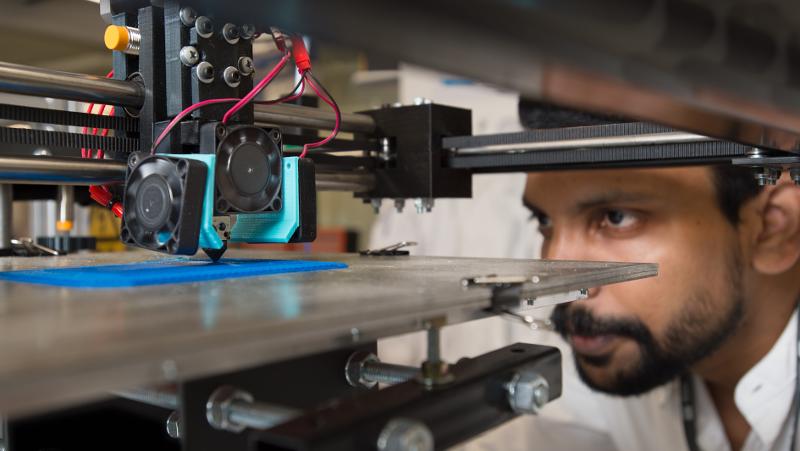
Australia’s leadership in 3D printing in medicine and health care has leapt ahead with an ARC training centre dedicated to cutting-edge research in close collaboration with hospitals and industry to rapidly translate lab findings into practical patient benefits.
Three research projects well underway at the ARC Industrial Transformation Training Centre in Additive Biomanufacturing* based at QUT’s Institute of Health and Biomedical Innovation are:
- A hand-held ‘bio pen’, fed with bioink that will allow surgeons to 3D-print patient-specific cartilage cells on to knee and hip joints to repair and replace cartilage which is the ‘shock absorber’ for our long bones.
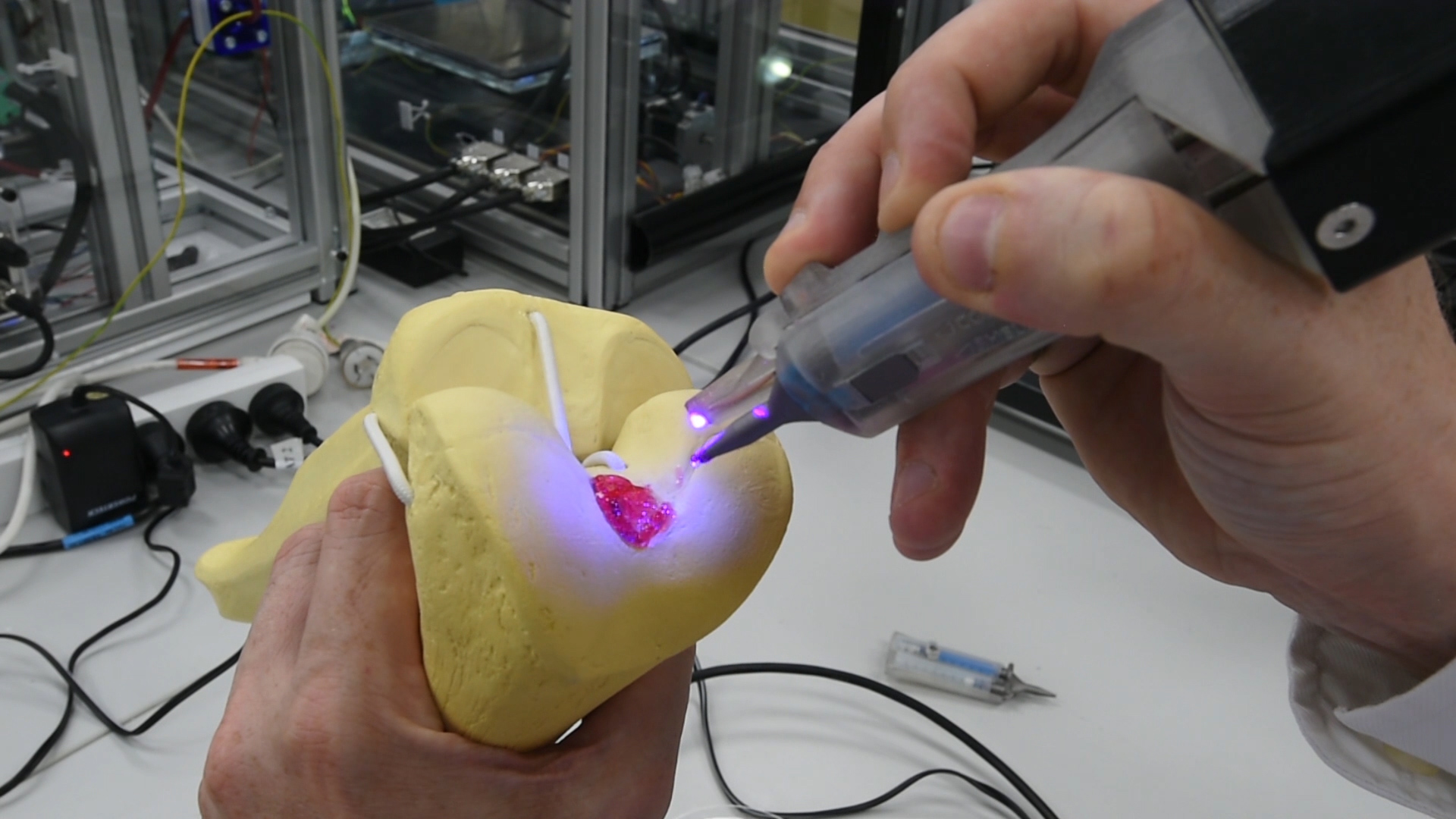
- Patients can look forward to less time under anaesthetic as surgeons can improve their suture skills dramatically with a new, largely 3D-printed device, that lets them practise suturing tiny 3D-printed ‘blood vessels, nerves, ligaments and tendons’ to increase their skill and speed and test the quality of suturing lines via measuring the burst strength and water leakage.
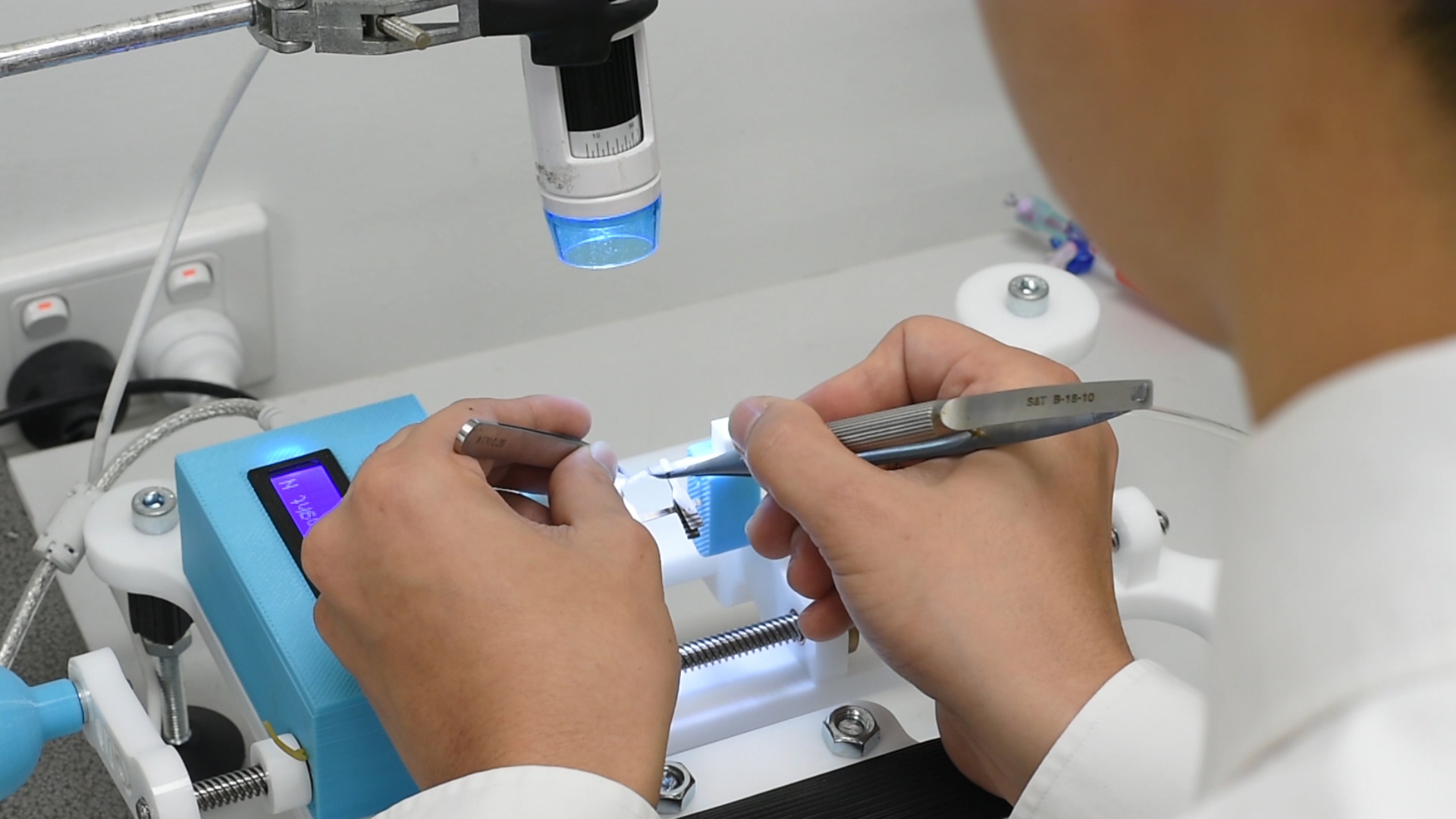
- Cell biology and tissue engineering scientists are moving ever closer to personalised, patient-specific cancer therapy by using 3D-printed hydrogels to model individual patients’ tumours to test for the most effective drug for that particular patient.
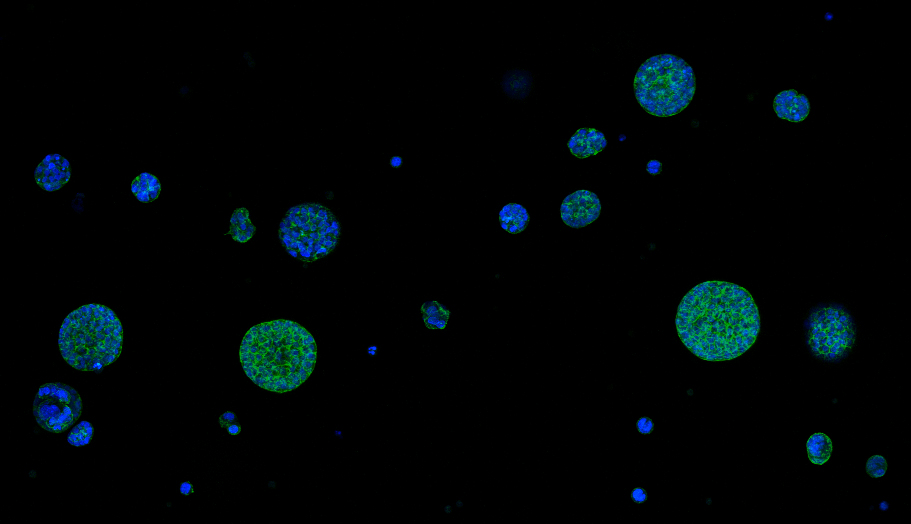
Directed by QUT Distinguished Professor Dietmar W Hutmacher, the ARC Industrial Transformation Training Centre in Additive Biomanufacturing is a collaboration by five Australian universities, the Shanghai Institute of Ceramics, St Vincent's Hospital in Melbourne and medical industry partners.
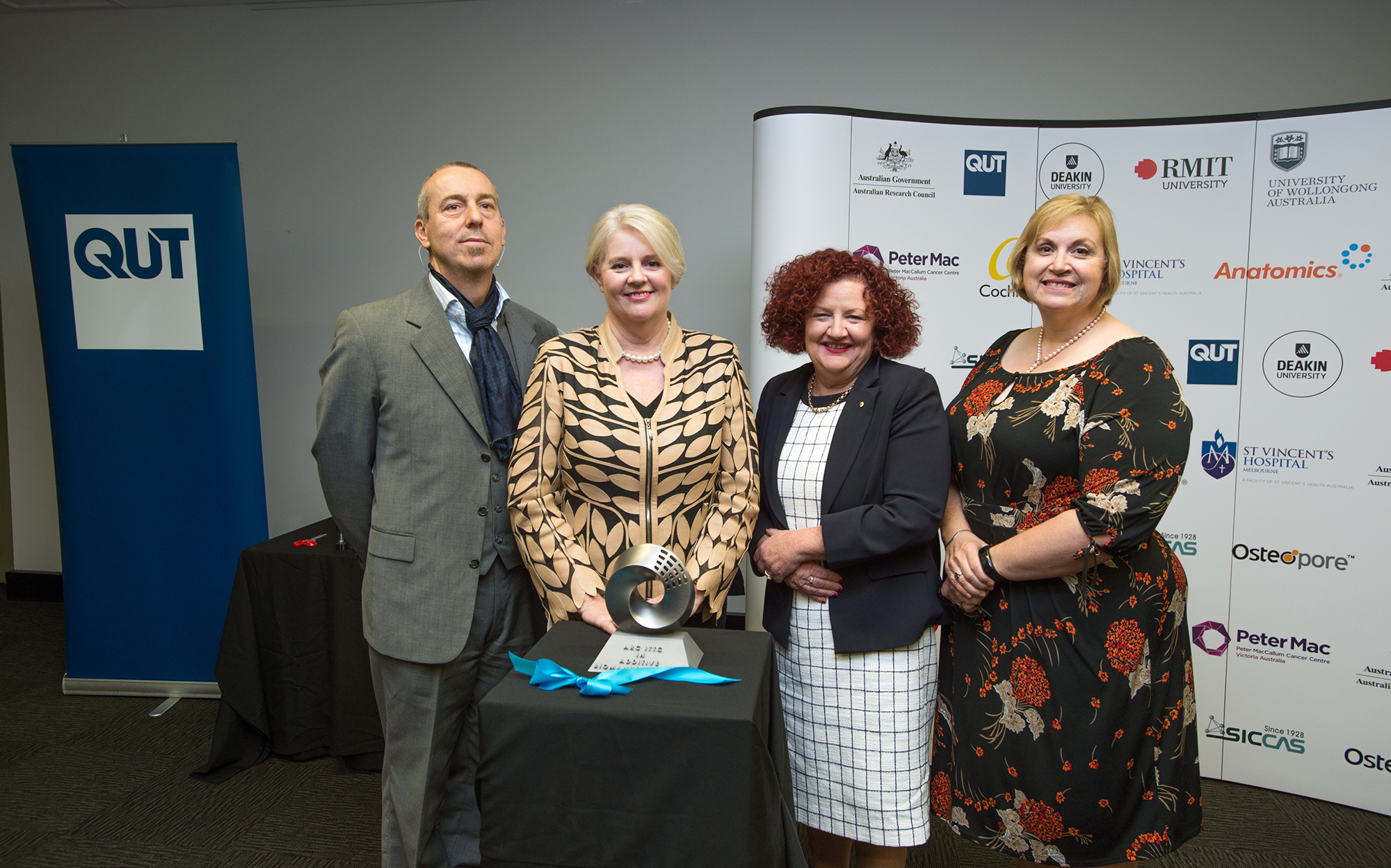
“The Centre is focussed on developing the next generation of additive biomanufacturing technology and training the future leaders of this field,” Professor Hutmacher said.
“Each of the Centre’s 12 PhD candidates and three post-doctoral researchers is working with an industry partner and an academic expert in the field so that we can bring these findings from ‘bench to bedside’ quickly.
“Our research team includes biomedical engineers, biochemists, surgeons and a lawyer working on every aspect of this game-changing field of medicine so it becomes part of everyday medical practice in the near future.
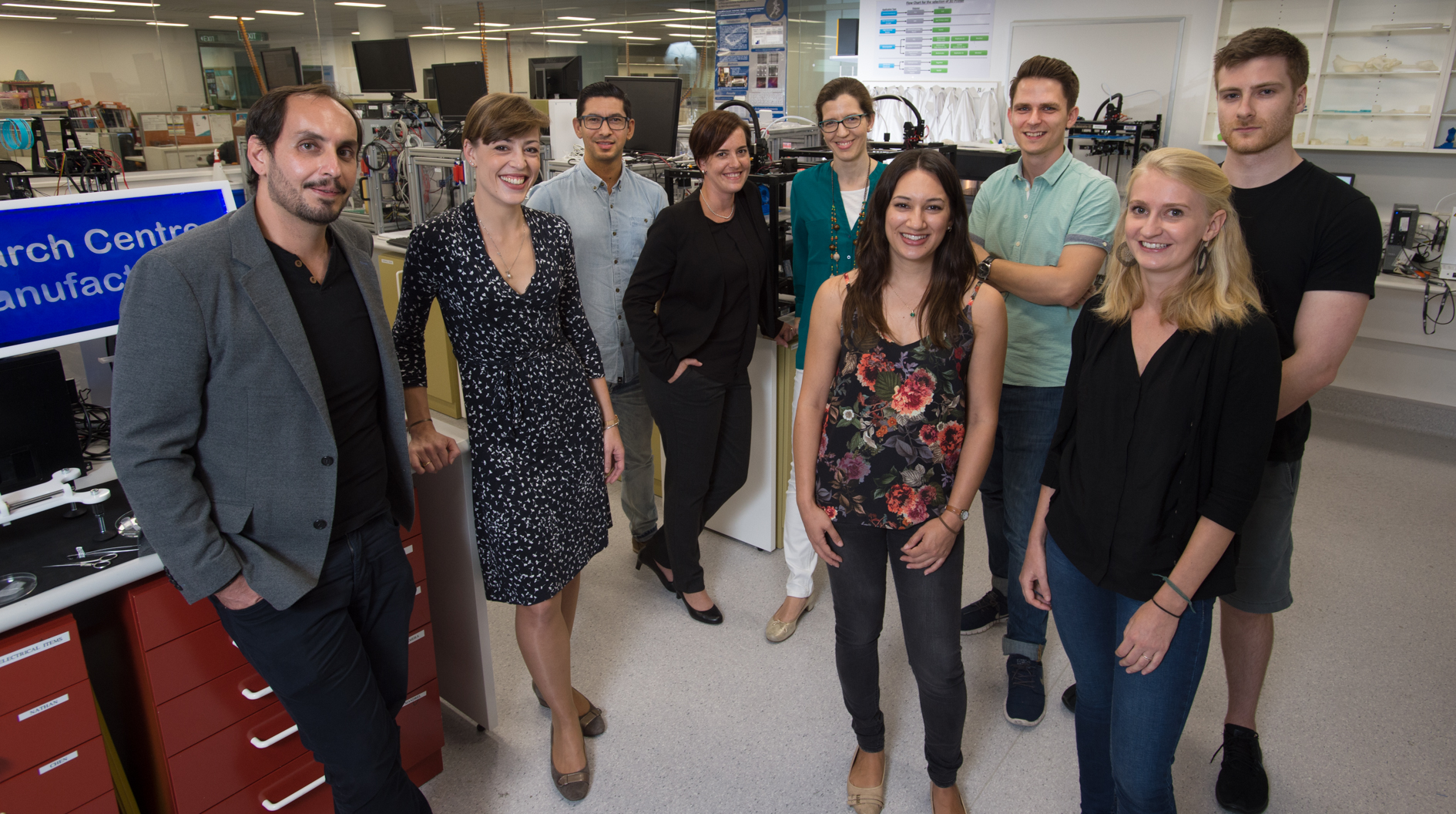
“Other areas where our research has already broken new ground include:
- design and manufacture of 3D printers based on the concept of melt electrospinning writing (MEW) to enable printing at a finer scale than previously achieved – down to 0.01mm - which can be precisely tailored for a variety of biomedical applications such as heart valves, blood vessels, nerve guides and bone scaffolds.
- spin-off company (Gelomics) which develops and manufactures advanced bioinks that allow 3D printed cells and fabrication of 3D models for cancer research.”
QUT Vice-Chancellor Professor Margaret Sheil AO said the Centre was at the cutting edge of how science and clinical translation was done.
“It brings together leading talent from the physical sciences, the life sciences and engineering in a close engagement with industry and clinicians,” Professor Sheil said.
“These experts work together to push the frontiers of technology, devising new ways to customise treatments for patients with challenging problems ranging from large bone defects to deafness.
“Personalised medicine is the approach of the future and at QUT we are at the very forefront of these exciting developments that will benefit all Australians and ultimately patients around the world.”
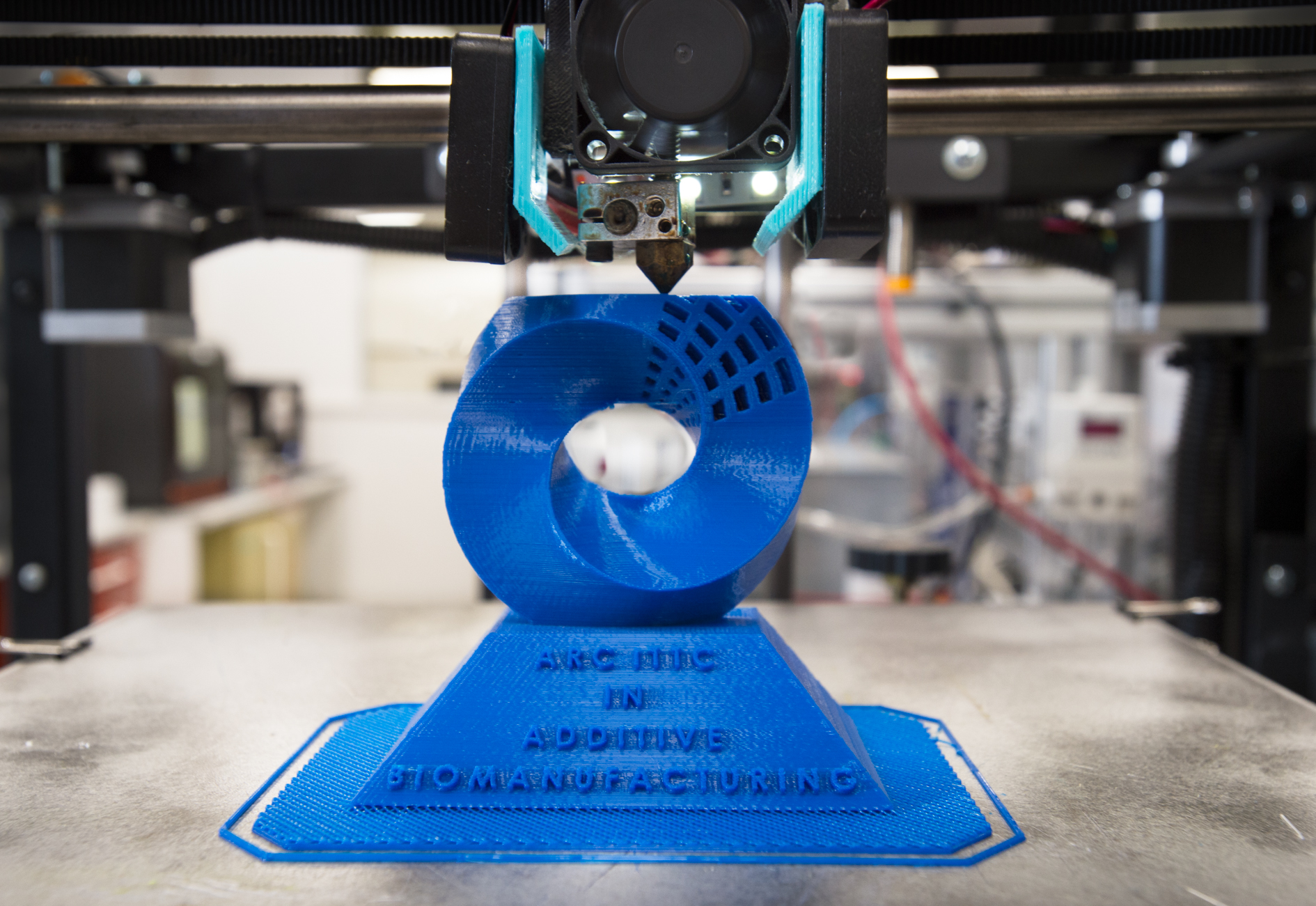
Professor Hutmacher said the ARC ITTC was performing ground-breaking and innovation research by delivering:
- fundamental knowledge and translational research in additive biomanufacturing
- building human capacity in cross-disciplinary areas of bioengineering, advanced manufacturing, materials science, biology and biomechanics
- innovation in design and fabrication of medical devices and implants providing a platform for growth in Australia of a nascent medical device and advanced manufacturing industry.
Universities collaborating with QUT in the ARC ITTC are the University of Wollongong, RMIT,
Deakin University and the University of Melbourne.
*Additive biomanufacturing is 3D printing with biological components.
QUT Media contact:
Niki Widdowson, 07 3138 2999 or n.widdowson@qut.edu.au
After hours: Rose Trapnell, 0407 585 901 or media@qut.edu.au




